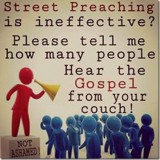Here are two extensive quotes from a book titled Spiritual Secret of Hudson Taylor by Dr. and Mrs. Howard Taylor to encourage and edify the Saints of Christ.
— ooo —
Mr. Taylor came to America once again after leading the first North American group to China in 1888. His chief object in coming over being the settlement of the work upon a permanent basis, he gave much time to meetings with the new council. The number of the latter was increased, and Mr. Frost was invited to assume the sole responsibility as treasurer and secretary, making his home in Toronto. It was with concern that Mr. Frost saw the days and weeks slip by of Mr. Taylor’s visit, which was too short. Much helpful fellowship they had together as they travelled from place to place, Mr. Taylor addressing over forty meetings in eighteen different centres during the five weeks he was in America. Four days at Northfield completed the program and brought the mission again before many friends of the previous summer. Mr. Moody’s interest was so much deepened that he offered the beautiful and spacious “Northfield Hotel” during the winter, as a training home for the candidates of the mission, undertaking himself to give a course of one month’s Bible lessons.
Cheered and strengthened by many tokens for good, Mr. Taylor left America in August to carry out a full program of meetings, which included a visit to Sweden before the close of the year. So pressing and constant were his engagements that he found it difficult to obtain the time needed for remembering all his fellow workers daily before God. Well he knew that to relax prayer was to open the way for the Enemy to come in like a flood, and as he travelled from place to place, he literally had to buy up every opportunity for this unseen but important work.
The burden on Mr. Taylor’s heart all through this Swedish visit, if burden it could be called, was the deeper apprehension that had come to him of the meaning of the divine command, “Go ye into all the world, and preach the gospel to every creature” (Mark 16:15). For more than forty years that command had controlled his life, and he had responded to it with unquestioning obedience. What had he not done and suffered; how had he not helped and inspired others in seeking to carry it out! Surely if there were a man anywhere who might feel that he had discharged his responsibility in this matter, it was Hudson Taylor.
And yet, on a quiet Sunday by the sea, how new the conception that had dawned upon him of the Master’s meaning in those long-familiar words! It was Mrs. Taylor’s birthday (October 6, 1889), and they were spending it at her father’s home at Hastings. Did it recall that other memorable Sunday, on the sands at Brighton, when he had met the crisis of his life and had yielded himself to God for the evangelization of inland China?
What he saw now, in the light of the Holy Spirit’s teaching, was a meaning so great, so comprehensive, in those few simple words – among the last that fell from the ascending Saviour’s lips – that it seemed as if he heard them for the first time. He wrote a few months later:
I confess with shame that until that moment the question, What did our Lord really mean by His command, “Preach the Gospel to every creature”? had never been raised by me. I had laboured for many years, as have many others, to carry the Gospel further afield, had laid plans for reaching every unreached province and many smaller districts in China, without realizing the plain meaning of our Saviour’s words.
“To every creature”? And the total number of Protestant communicants in that great land was only forty thousand. Double the number, triple it, to include adherents, and suppose each one to be a messenger to eight of his fellow countrymen – even so, only one million would be reached. “To every creature”: the words burned into his very soul. But how far was the church, how far had he been himself from taking them literally, as intended to be acted upon! He saw it now, however, and with Hudson Taylor there was but one course – to obey. He wrote that very day:
How are we going to treat the Lord Jesus Christ with reference to this command? Shall we definitely drop the title Lord as applied to Him, and take the ground that we are quite willing to recognize Him as our Saviour, so far as the penalty of sin is concerned, but are not prepared to own ourselves “bought with a price” (1 Cor. 6:20), or Him as having any claim to our unquestioning obedience? Shall we say that we are our own masters, willing to yield something as His due, who bought us with His blood, provided He does not ask too much? Our lives, our loved ones, our possessions are our own, not His; we will give Him what we think fit and obey any of His requirements that do not demand too great a sacrifice? To be taken to heaven by Jesus Christ we are more than willing, but we will not have this Man to reign over us?
The heart of every Christian will undoubtedly reject the proposition, so formulated, but have not countless lives in each generation been lived as though it were proper ground to take? How few of the Lord’s people have practically recognized the truth that Christ is either Lord of all, or is not Lord at all! If we can judge God’s Word instead of being judged by that Word, if we can give to God as much or as little as we like, then we are lords and He is the indebted one, to be grateful for our dole and obliged by our compliance with His wishes. If, on the other hand, He is Lord, let us treat Him as such. “Why call ye me, Lord, Lord, and do not the things which I say?” (Luke 6:46).
So, all unexpectedly, he came to the widest outlook of his life, the purpose that was to dominate the closing decade of its active service. With hair fast turning grey and fifty-seven years of experience behind him, he met the new sense of responsibility with the old faith and confidence. Oh, the fresh appeal of the old incentives; the uprising of soul before the old ideals; the faithfulness to early vision, to the first calling; the undimmed power of the one, the ever-supreme Love! It is all there – all the purpose of youth without abatement, without compromise, despite the stern realities of twenty-four years of the grinding mill as leader of the Inland Mission. It was fine, fine flour now, but none of it was lost. “None other name” (Acts 4:12), none other sufficiency! Christ and Him crucified, the one, the only remedy for the sin and need of the world; God, changeless, inexhaustible, behind His commands and promises; divine, constraining love, the motive-power – it is all there, first as last and last as first. (End quote of pages 373-377)
Prayers Yet to Be Answered
Prayers yet to be answered – how rich the inheritance Hudson Taylor left to the land he loved, to the church of God in China for which his life was given! In one sense, the prayers of that lifetime had indeed been answered.
But in another sense, do not those prayers lie beyond us yet, marking out wide possessions upon which the foot of faith has trodden, possessions still to be possessed?
Nothing could have been more definite than Mr. Taylor’s own conviction as to the thoughts that had come to him in 1889. Once he had seen it, he could never doubt again the Master’s will and purpose that “every creature” in China should hear the glad tidings of salvation. Through all the years that followed, though hindered again and again, and postponed for a time by the Boxer [Rebellion] crisis, his original purpose never wavered. He said at the C.I.M. conference in 1890:
This work will not be done without crucifixion, without consecration that is prepared at any cost to carry out the Master’s command. But, given that, I believe in my inmost soul that it will be done. If ever in my life I was conscious of being led of God, it was in the writing and publishing of those papers, the first of which came out in November of last year.
“The sun has never risen upon China without finding me in prayer,” Mr. Taylor could say of long years of his labours in that land, and perhaps no part of those labours had more to do with the results we see today. But he not only prayed. The foregoing pages have revealed a little of what lay behind those prayers. “I do want to give up myself and you too, darling, for the life of the Chinese and of our fellow workers,” he wrote to Mrs. Taylor in one of their many separations, and, “Notice, in 1 Corinthians 1:18, the connection of the Cross with power. Do not many lives lack power because they do not love the Cross? May your life be full of the power of God, and mine.”
The need that moved him, the command that revealed the yearning of the heart of Christ who we, too, call Master and Lord – remain the same years after Hudson Taylor’s death. Great changes have come and are coming to China. New methods are need in missionary work to meet the new conditions, and they are being prayerfully developed and applied. But the great underlying facts remain the same. Idolatry has not lost its hold. Writing from the far northwest (June 1918), a member of the mission tells of guilds in one city numbering thousands of men and women sworn to regular worship at stated times. In one of these some fifteen hundred women are pledged to go to a certain temple on the second and sixth of every month, “where they kneel upright on the verandas and in the courtyard, each holding a stick of incense between the two hands raised to the level of the forehead. This position has to be maintained and prayers recited until the stick of incense has burned away – quite a long process.” And offerings of money must be made on every one of the stated worship days, which go to building and beautifying of temples and making fresh idols. And this is only one city out of hundreds that have as yet no resident missionary. Do the people need light in their darkness? Do they not care about the unknown future and what becomes of the soul? Is it for them too that the precious blood was shed which alone can cleanse from sin and bring us nigh to God? And what will be said of the responsibility that rests upon us if, knowing these things, we are not doing our utmost – whether by prayer or gifts or personal service – to bring to them, too, the knowledge which is life eternal?
Much is being done, but much more is needed if the present opportunity – perhaps the most glorious that has ever come to Christian men and women – is to be dealt with faithfully. “When China is moved,” Napoleon used to say, “it will change the face of the globe.” China is moved, is moving: will it not be home to the heart of God?
If the one whose steps we have followed through a life of toil and sacrifice, yet of radiant joy in fellowship with Christ, could speak to us today from the “exceeding and eternal weight of glory” (2 Cor. 4:17), would he not say again as he said in the midst of the fight:
There is a needs-be for us to give ourselves for the life of the world – as He gave His flesh for the feeding of the lifeless and of living souls whose life can only be nourished by the same life-giving Bread. An easygoing, non-self-denying life will never be one of power.
Fruit-bearing involves cross-bearing. “Except a corn of wheat fall into the ground and die, it abideth alone” (John 12:24). We know how the Lord Jesus became fruitful – not by bearing His Cross merely, but by dying on it. Do we know much fellowship with Him in this? There are not two Christs – an easygoing one for easygoing Christians, and a suffering, toiling one for exceptional believers. There is only one Christ. Are you willing to abide in Him, and thus to bear much fruit?
Would that God would make hell so real to us that we cannot rest; heaven so real that we must have men there; Christ so real that our supreme motive and aim shall be to make the Man of Sorrows the Man of Joy by the conversion to Him of many concerning whom He prayed, “Father, I [long] that [those]… whom thou hast given me, be with me where I am; that they may behold my glory” (John 17:24). (End quote of pages 393-396)
Filed under: C.I.M., China, China Inland Mission, England, Evangelising Mission, God, Hudson Taylor, Jesus Christ, Mission, Outreach | Leave a comment »




















 Joshua Project
Joshua Project The Biblical Basis of Missions
The Biblical Basis of Missions

![The Biblical Nativity (Birth) of our Lord Jesus Christ according to the Holy Scriptures in the Gospel of Luke 1 & 2 [see Purge the leaven … blog post] The Nativity of our Lord Jesus Christ ~ Luke 1 & 2 The Biblical Nativity (Birth) of our Lord Jesus Christ according to the Holy Scriptures in the Gospel of Luke 1 & 2 [see Purge the leaven … blog post]](https://luke923evangelism.files.wordpress.com/2012/12/birth-of-christ-e1374168223523.png)



